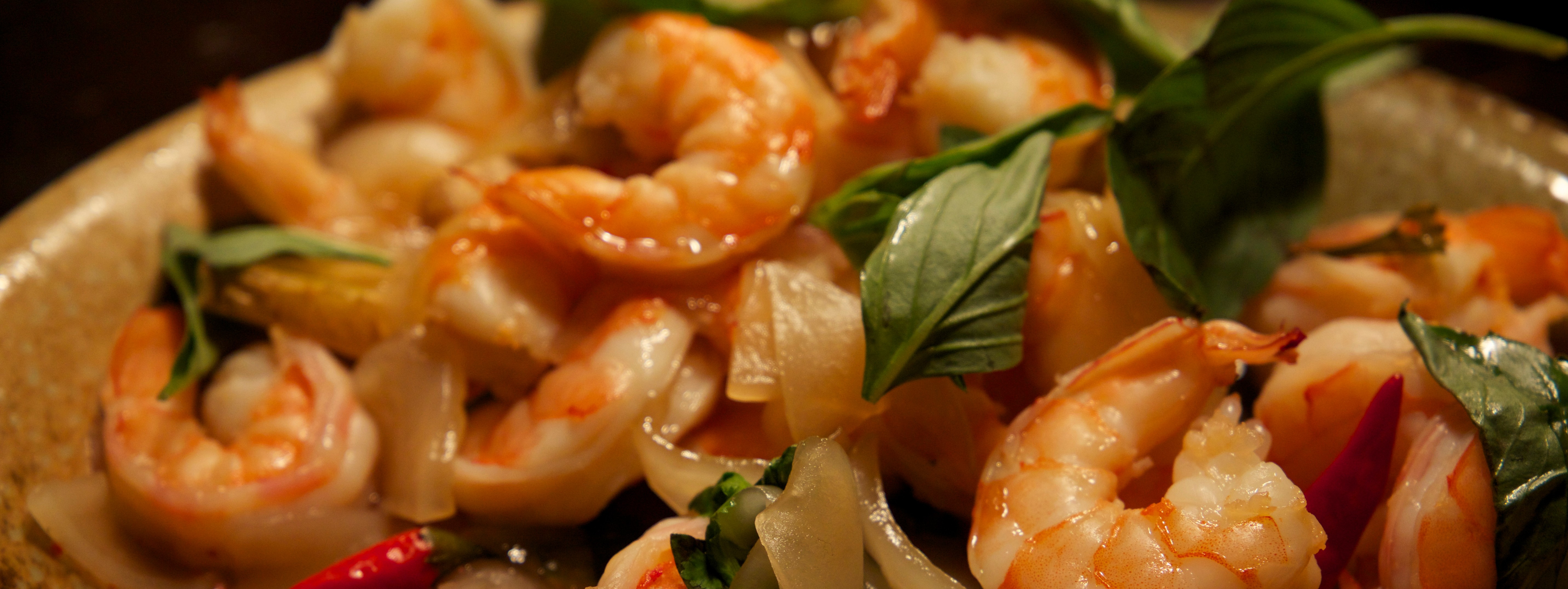Left Image: Teamster Robert Cafarelli leaving court after his arraignment in 2015. (Photo by Jim Davis/The Boston Globe via Getty Images) Right Image: Padma Lakshmi on the set of 'Top Chef' in 2014. (Photo by David Moir/Bravo/NBCU Photo Bank via Getty Images)
A clash between America's most notorious labor union and the reality TV show Top Chef is coming to a head in federal court this week in a bizarre extortion trial that centers on allegations of nasty slurs and slashed tires.Federal prosecutors say four men from the Boston-based Teamsters Local 25 tried to extort staff on Bravo's wildly popular cooking series—including its star Padma Lakshmi. The spat in question broke out during filming of Season 12 in 2014, when Teamsters protested the show for not hiring union labor.John Fidler, Daniel Redmond, Michael Ross, and Robert Cafarelli are charged with conspiracy to extort and aiding and abetting—and each face up to 20 years in prison. All have pleaded not guilty.A fifth Teamster, Mark Harrington, already copped a plea deal last year that came with a sentence of six months home confinement, two years probation, and $34,123 in fines and restitution. Despite the plea, Harrington argued in court he was only trying get jobs for union workers. That's the key to the criminal charges facing his fellow members—whether they were trying to bolster their cause (and maybe even help workers generally) or crossing a line into Sopranos-style intrigue.The tension in the case speaks to issues that have been dogging the labor movement for more than a century, according to Ileen DeVault, director of the Worker Institute and professor of labor history at Cornell University. She pointed to the Clayton Antitrust Act of 1914, which exempted unions from previous legislation that left them vulnerable to charges of "conspiracy" for picketing.
We hung out with Gail Simmons from Top Chef in New York.
Emotions are "always high in any kind of picket situation," DeVault told me. "It's where some of the bad press comes from."What remains to be seen is how jurors make sense of an ugly dispute between a local political force and a pop-culture institution—and the nuances of the labor laws in play. As Nancy Gertner, a former federal judge* and Harvard Law professor, put it, "The line between protected union activity and unprotected union activity is a fine line, and this case will be about that."In addition to the national implications, the case is part of a broader assault launched by federal prosecutors in Massachusetts against what they've portrayed as out-of-control unions. Two of Boston mayor Marty Walsh's aides are set to go to trial on similar charges next January for allegedly pressuring music festival organizers to hire union workers, and city hall staff emails are expected to feature heavily in the Teamster trial, according to the Boston Herald.Walsh is a first-term mayor with a long pro-union past in a state with its share of corruption lore. As Gertner wrote in an editorial at the time, a 2016 Supreme Court ruling overturning the conviction of former Virginia governor Bob McDonnell rose the bar even higher when it came to slapping public officials with corruption charges.While that precedent may help protect politicians and their aides, when it comes to labor unions and their organizing rights, the legal system may not be so forgiving.The Top Chef chicanery is said by prosecutors to have started on or about June 9, 2014.Producers intended to film the show in Boston proper, at the historic Omni Parker House Hotel where John F. Kennedy proposed to Jackie O. in 1953. But a city representative allegedly called the hotel to say that because Top Chef was not hiring union workers, Local 25 was planning to picket. Omni Parker House soon rescinded the show's permission to use the historic establishment because it didn't want any union trouble, prosecutors said.Unable to convince proprietors at other distinguished Boston establishments to let them film due to union protests, Top Chef producers moved on, eventually selecting a swanky spot called Steel & Rye in Milton, a wealthy suburb.But when the staff arrived at their set, the five men from Local 25 were ready for them, according to the feds."Lookie what we have here," Fidler allegedly leered as Lakshmi was driving up to the set. The Teamster is accused of inserting his arm into the van carrying the star and adding an explicit threat: "I'll smash your pretty little face."The men are also accused of directing misogynistic and homophobic slurs at the staff, and even chest-bumping them. After filming had concluded for the day, production staff discovered slashed tires on nine of their vehicles, according to court documents.On Tuesday, Erica Ross, Top Chef's former co-executive producer, told the court, "If you were a woman, they called you a c*nt, and they called everyone scabs." Cellphone footage also showed a Teamster calling another producer who was wearing a headscarf a "towel head," according to Deadline.That same footage also showed Ross taunting the teamsters. "Are you shaking?" she asked them. Ross testified that a reality TV chef contestant escalated the situation, too.Ross said she asked two Milton police officers on the scene for help when Teamsters put their hands on a production vehicle attempting to cross the picket line—and that the cops refused. "I asked the police, 'Why is this OK?' and he said [the Teamsters] know exactly what they can and cannot do,'" Ross told the court.Key to the case is prosecutors' contention that Lakshmi was "paralyzed with fear." The feds weren't just indulging in drama: Demonstrating fear is a linchpin for any extortion charge.
"Putting someone in fear in the hopes that you are going to gain something from it," is the cornerstone of extortion law, according to veteran Boston defense attorney Michael Doolin. The classic cases involve threatening to do things like "expose your secret or beat you up or set your house on fire," he said.In other words, the victim's state of mind is critical.What a jury has to decide is whether this was a mere culture clash between LA-based reality TV stars and brusk Boston teamsters—or something more nefarious than that."Just because these guys are big and tough looking and out picketing and yelling things in a random way" doesn't mean they are actually threatening individuals, Doolin told me.As far as Teamster antics go, Peter Moser, a Boston labor attorney who negotiates on behalf of employers at Hirsch Roberts Weinstein, LLP, said he's seen worse. This case, he thinks, "just happened to catch interest because it's Top Chef and it freaked out the folks from out of town.""In an ideal world, this would be an assault case," Moser said of the Top Chef trial, noting the two cops were present when the crimes allegedly took place and could have made an arrest then and there if the Teamsters' actions rose to that level.It's worth noting that prosecutors chose not to charge the men under a hate crimes statute for their alleged use of slurs but instead with extortion, which actually carries a heftier sentence and may be easier to prove. Gertner wondered if that was done for the typical reason—prosecutors often seek the harshest penalties possible—or to "send a message to the unions" clashing with the local US Attorney's Office.Labor activists, meanwhile, argue that the extortion charges against the Teamsters could discourage workers from organizing and asserting their rights. In an amicus brief, sympathetic labor lawyers at Segal Roitman, LLP, wrote, "If the test for extortion is whether the employer welcomed the pressure, labor protests would have been criminalized long ago."Prosecutors maintain this is a criminal matter involving a group of individuals, not a labor matter. The "defendants were most definitely not picketing for 'replacement workers.' This was picketing for additional workers; workers that were not needed but rather were imposed, unwanted and superfluous," they wrote in court documents.Seeming to bolster prosecutors' contention, the union's president Sean M. O'Brien told local cops that what happened in Milton "was not a planned event through Local 25."The fear for labor, Moser said, is that if the jury rules with the government, this case might "chill the protected action" of unions nationwide.The government continued initial arguments on Tuesday, and Lakshmi is eventually expected to testify.Follow Susan Zalkind on Twitter.*Correction 08/02/2017: An earlier version of this article said Gertner was a former federal prosecutor. In fact, she is a retired federal judge. We regret the error.
Advertisement
We hung out with Gail Simmons from Top Chef in New York.

Emotions are "always high in any kind of picket situation," DeVault told me. "It's where some of the bad press comes from."What remains to be seen is how jurors make sense of an ugly dispute between a local political force and a pop-culture institution—and the nuances of the labor laws in play. As Nancy Gertner, a former federal judge* and Harvard Law professor, put it, "The line between protected union activity and unprotected union activity is a fine line, and this case will be about that."
Advertisement
Advertisement
Advertisement
Advertisement
